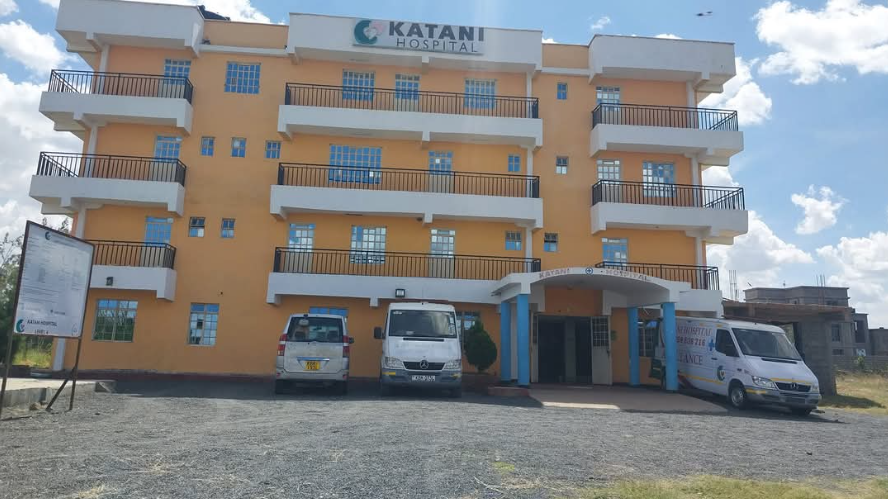

Men should take positively accompanying their expectant wives to prenatal clinics for joint HIV tests, Katani Level 4 Hospital CEO Dr Modesta Vesonder has said.
Vesonder said this would help in reducing HIV prevalence rates among Kenyans since couples will be wary of their status hence get introduced to necessary medication on time.
She said most men don’t know their HIV status as opposed to women, thereby making the fight against the HIV/AIDs pandemic challenging.
“HIV morbidity and mortality rates in Kenya have increased between 2023 and 2024 as compared to five years ago,” Vesonder said.
She spoke to the Star at Katani hospital in Athi River, Machakos county on Wednesday.
The doctor said Kenyans should not be reckless in their sexual behaviours especially during the Christmas and New Year festivities.
Vesonder said transmission of HIV from mother to child has also increased in the country over the years.
“Many people have died from complications of HIV since it was first diagnosed in 1989. Testing, early diagnosis, treatment and continued utilisation of HIV medicines can prevent progression of HIV to AIDS,” Vesonder said.
She holds a PhD in Public Health with specialisation in Epidemiology and a Masters in Adult Medicine.
The medic said Katani hospital had been reaching out to communities with voluntary HIV counseling and testing services among other healthcare services.
“We have so far tested over 3,000 people in Machakos, Kajiado and Nairobi counties. When HIV testing is available in communities where people live and work, they respond positively to the screening tests,” Vesonder said.
She said most women keep their HIV status secret especially when they turn out to be positive if tested during their antenatal care.
They tell medics not to divulge results to their spouses or relatives.
This, Vesonder, said was a risky behaviour since it leads to spread of the virus given that spouses can’t take necessary precautions to protect themselves from infections and re-infections due to ignorance.
HIV/AIDS male champion, Paul Odhiambo, said he tested positive for HIV when he accompanied his wife to pre-natal clinic 16 years ago.
“I have lived with HIV for 16 years now. I tested positive for HIV when I accompanied my second wife (deceased) to a pre-natal clinic in 2008,” Odhiambo told the Star on Wednesday.
The last born was successfully delivered free of the virus. She is currently in Form 3 and scheduled to sit KCSE in 2025.
"I got to know my HIV status because my wife was tested at the maternity during her pregnancy and she was asked to take her spouse for both of us to undergo counseling and testing," Odhiambo said.
Odhiambo, now a development consultant at Positive Action Community Groups Solutions, a civil society organisation, said he couldn't believe he was HIV positive after the test was done on him.
"I was then 48 years old, a young man, had money and could do anything I wanted. I was a civil servant then," Odhiambo said.
Kenyans, especially those from low income communities, don’t seek medication in hospitals, a situation likely to lead in increase in HIV prevalence rate in the country. Vesonder said HIV is not a death sentence.
“Every pregnant woman who attends prenatal clinic is tested for HIV, if found to be positive, they are counseled and started on Antiretroviral Therapy (ART),” Vesonder said.
“If a pregnant woman living with HIV complies with treatment, their viral load can reduce significantly to where through proper management, they aren’t able to transmit the virus to their newborn. Babies born from these mothers should receive treatment and be exclusively breastfed for a minimum of six months.”
Vesonder said Kenya had made significant strides in prevention of HIV from mother to child.
“During Covid-19 and thereafter especially with high inflation rates, insurance issues and lack of access has played a role in the increase of transmission from mother to newborn,” Vesonder said.
According to the National Syndemic Disease Control Council, 9,579 men and 21,466 women are on ART in Machakos county.
In Kajiado county, 5,776 men and 13,272 women are on ART while 58,460 men and 117,856 women are on ART in Nairobi county.
These are people between 15 years and above. Adults on ART in Machakos county are 21,466 while in Nairobi county they are 117,856 and 13,272 in Kajiado.
There are 1,048 children between 0 – 14 years on HIV medication in Machakos while those in Kajiado are 749 and 3,718 in Nairobi.
HIV related deaths in Kenya are 20,480 with adults being 17,873, children 2,607, adolescents 1,351 while those between 15 – 24 years are 2,094.
Children deaths in Machakos, Kajiado and Nairobi are 7,965 and 52 respectively.


